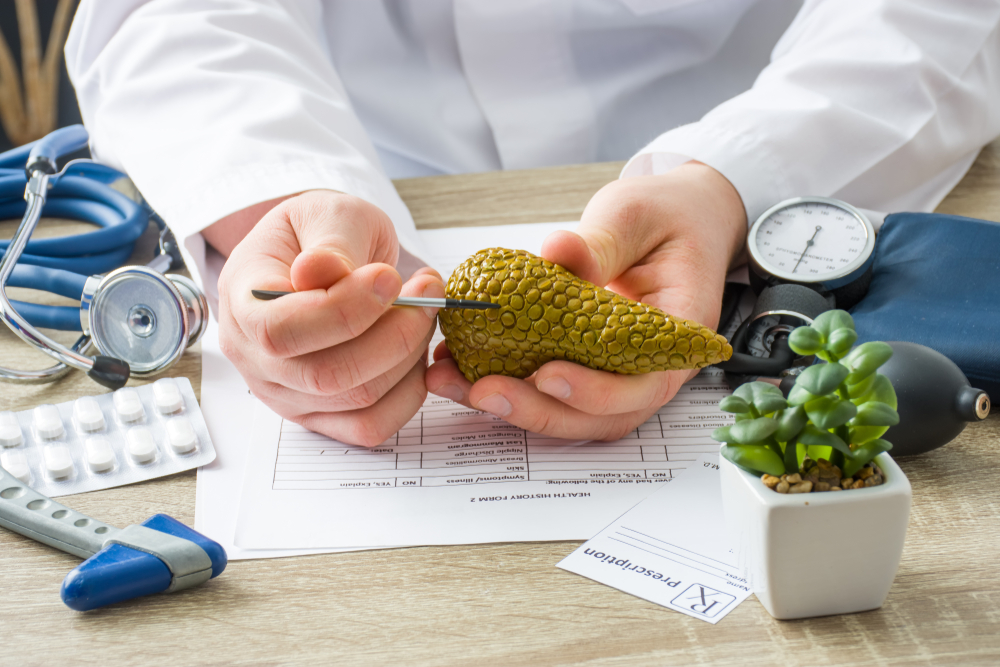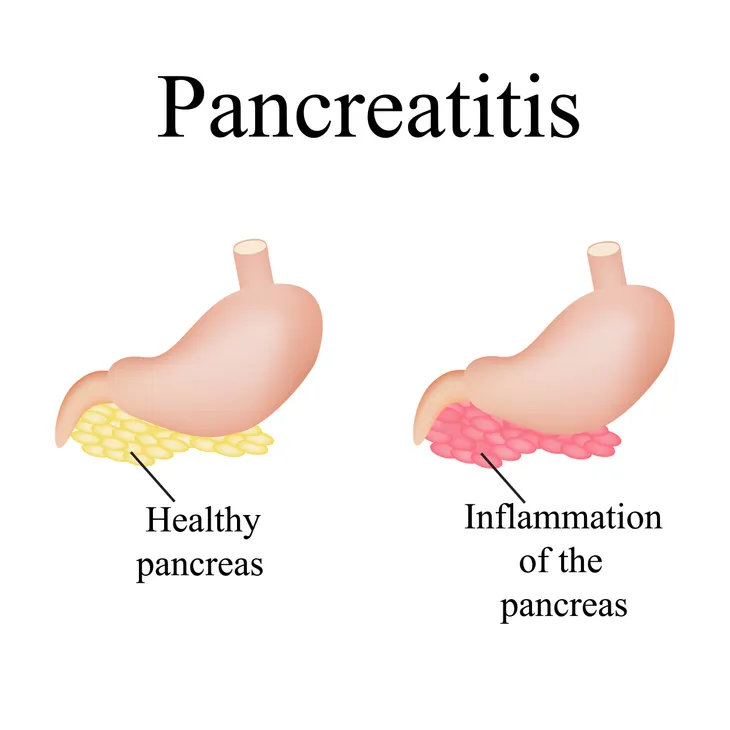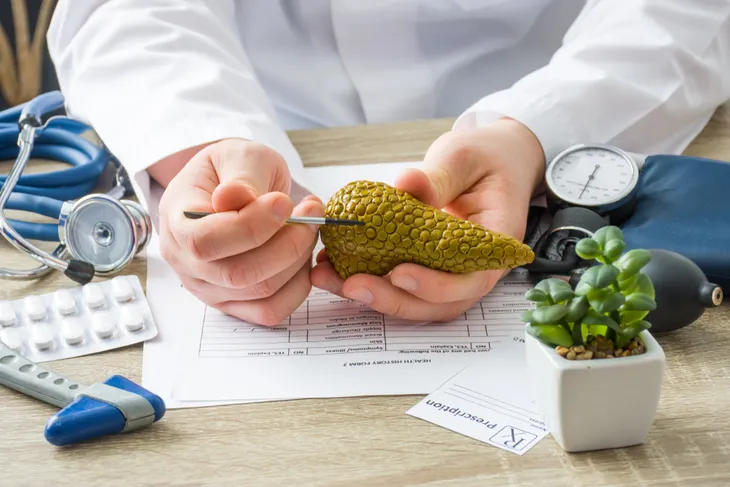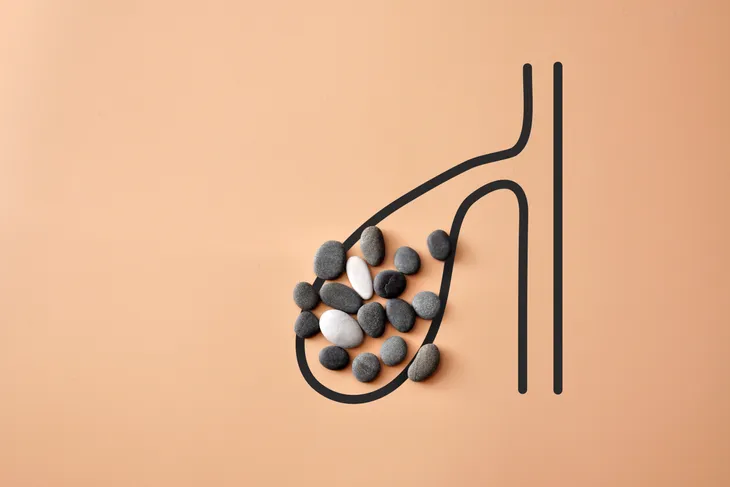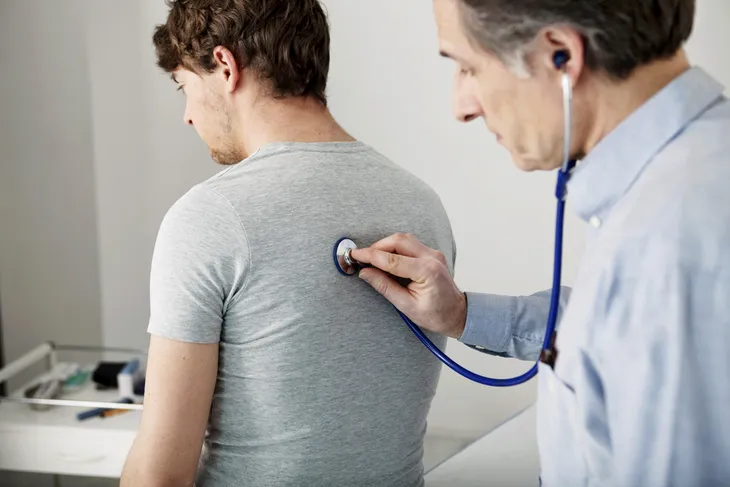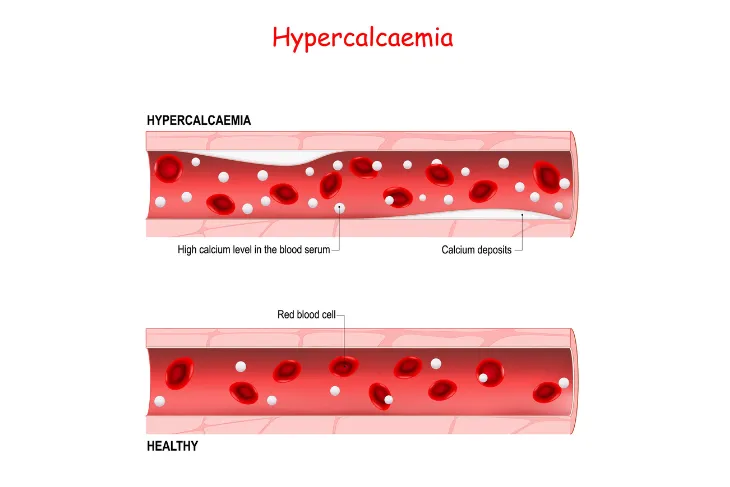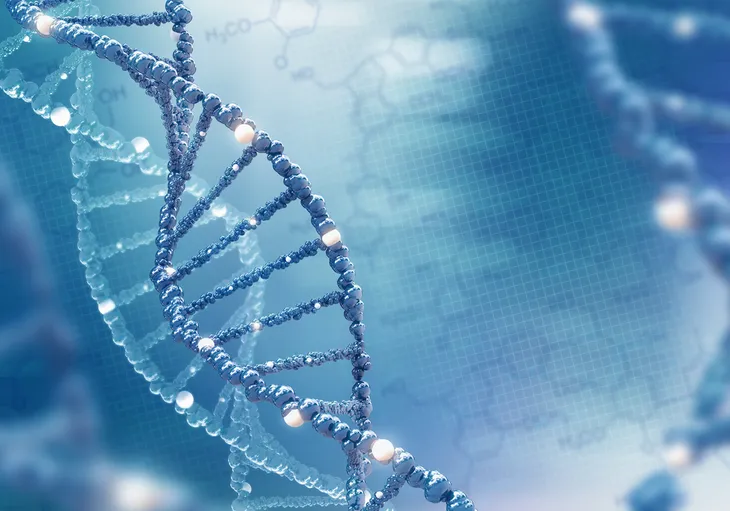- Pancreatitis occurs when digestive enzymes attack the pancreas, causing inflammation.
- The most common causes of pancreatitis are gallstones and consuming too much alcohol but there are other causes to be aware of.
- While pancreatitis can’t always be prevented, there are things you can do to help reduce your risk.
The pancreas plays an integral role in breaking down the food we eat and turning it into fuel for our body’s cells. It also helps regulate blood sugar. This is why we must take care of it.
Sometimes inflammation can occur in the pancreas, this is known as pancreatitis which can result in uncomfortable symptoms like abdominal pain, nausea, and vomiting. While pancreatitis can’t always be prevented, there are things you can do to reduce your risk and that starts with getting informed. Here’s a look at some of the common causes of pancreatitis.
What Is Pancreatitis?
The pancreas is a long, flat gland that lies behind the stomach on the left side of your abdomen. It’s responsible for making enzymes that break down food to support digestion. It also makes the hormone that regulates glucose in the body as well as glucagon, which helps control your blood sugar. Pancreatitis occurs when the pancreas is inflamed. Johns Hopkins Medicine says this happens when “digestive juices or enzymes attack the pancreas.”
Pancreatitis can be either acute or chronic. Acute means it appears suddenly and typically lasts for days whereas chronic pancreatitis occurs over many years.
What Causes Pancreatitis?
The Mayo Clinic says that mild cases of pancreatitis can often improve with treatment, however, severe cases can lead to life-threatening complications. This is why it’s important to understand the causes and know the signs. According to Johns Hopkins Medicine, the most common causes of pancreatitis are gallstones and consuming too much alcohol.
Pancreatitis can also be caused by cystic fibrosis, hypercalcemia, and smoking. It can even be a complication of abdominal surgery and it can run in families. Let’s take a closer look at these common causes next!
Gallstones
Gallstones are one of the most common causes of pancreatitis. Gallstones are produced in the gallbladder but sometimes they can fall out of the gallbladder and block the bile duct. When this happens, the Mayo Clinic explains that pancreatic enzymes are then prevented from traveling to the small intestine and forcing them back into the pancreas. When the enzymes are trapped in the pancreas, they can irritate cells and cause inflammation, thus leading to pancreatitis.
Signs of gallstones include sudden and rapid pain in the upper right abdomen or the center of your abdomen. Sometimes the pain can be felt between your shoulder blades or in your right shoulder. The pain may also be accompanied by nausea or vomiting. If your doctor suspects you have gallstones they may request a blood test or imaging tests (such as an abdominal ultrasound) to confirm a diagnosis. To prevent chronic pancreatitis your doctor may recommend surgically removing the gallbladder.
Alcohol
Not only is drinking too much alcohol (especially for long periods) bad for your overall health but it’s another common culprit of pancreatitis. According to the National Library of Medicine, it’s estimated that drinking more than or about 10 to 11 standard U.S. drinks for a minimum of 6- to 12-years can “produce symptomatic pancreatitis.”
Consuming too much alcohol can wreak havoc on the pancreas because it has a hard time processing large amounts of alcohol. According to the Centers for Disease Control and Prevention (CDC), adults of legal drinking age should limit their intake to two drinks or less per day for men and one drink or less per day for women.
Abdominal Surgeries
While this cause is less common than gallstones and alcohol abuse, it is still worth noting. More research is still needed but some specialists believe that having several abdominal surgeries may increase your risk of pancreatitis.
Pancreatitis may develop after abdominal surgery due to hemorrhage, infection, anesthesia, or a faulty surgical technique. If you have abdominal surgery booked in the future and are worried about your risk of pancreatitis, talk to your doctor.
Smoking
It’s no secret that smoking is not good for your health. Smoking can cause a long list of health problems from heart disease and cancer to lung diseases and even stroke. It turns out smoking may also affect your pancreas.
The reason smoking may cause pancreatitis is that the pancreas has a difficult time filtering toxins from cigarettes. And if you smoke regularly then you’re putting even more strain on the organ. Additionally, smoking and alcohol often occur together (especially in social environments), which may increase your risk further. Quitting smoking is hard but it’s not impossible. If you need help quitting, contact your doctor for resources.
Cystic Fibrosis
Cystic fibrosis (CF) is a disease that damages the lungs, digestive tract, as well as other organs. CF sufferers are also familiar with problems associated with the pancreas. The Cystic Fibrosis Trust explains that individuals with CF have difficulty transporting enzymes out of the pancreas because the small tubes become blocked with mucus. This causes the enzymes to build up in the pancreas, causing inflammation and in turn, leading to pancreatitis.
The source explains, “people with CF have to take supplements to replace these enzymes with their meals to help digest their food.” But pancreatitis isn’t the only risk with CF. The source says problems with the pancreas can also lead to CF-related diabetes. Luckily, there are medications available to help “compensate for the failure of the pancreas,” explains the source.
Hypercalcemia
Hypercalcemia is a condition that develops when the calcium levels in your blood are too high. While calcium is essential for good health, too much can weaken your bones, cause kidney stones, and affect your heart and brain. It turns out hypercalcemia can also cause an overactive parathyroid gland and acute pancreatitis.
While hypercalcemia is one of the more rare causes of pancreatitis, your doctor may test for it if you don’t have any other underlying causes or hereditary genes for the condition. One medical journal explains that hypercalcemia may cause pancreatitis because of “calcium deposition in the pancreatic duct and calcium activation of trypsinogen in the pancreas.”
Genetics
Pancreatitis can also run in families. Hereditary pancreatitis (HP) is a genetic condition that can be passed from generation to generation. According to the American Society of Clinical Oncology (ASCO), the gene most commonly associated with HP is PRSS1. Changes to this gene can increase the individual’s risk of not only pancreatitis but pancreatic cancer too.
The source explains that every cell has 2 copies of each gene, one inherited from the mother and one from the father. But with HP, you only need 1 copy of the mutated gene to have an increased risk of the disease. This means a child who has a parent with a mutation to this gene has a 50-percent chance of inheriting that mutation too.
Common Signs of Pancreatitis
Along with understanding the causes of pancreatitis,you must knoww what the signs are. The Mayo Clinic says signs and symptoms will vary depending on which type of pancreatitis you have. For example, the source says common signs and symptoms of acute pancreatitis include:
- Abdominal pain that radiates to the back
- Upper abdominal pain
- Abdomen that is tender to the touch
- Fever
- Nausea
- Vomiting
- Rapid pulse
If you have chronic pancreatitis you should also be on the lookout for upper abdominal pain. Other signs and symptoms include abdominal pain that worsens after eating, unexplained weight loss, and oily, smelly stools.
When to See a Doctor
If you’re experiencing any of the symptoms we mentioned above, contact your doctor right away. Severe abdominal pain is not normal and should be looked at. Less severe but persistent pain should also be looked at.
Seeking treatment for pancreatitis is important because if left untreated, it may lead to difficulty breathing, digestion problems, diabetes, kidney failure, as well as other complications. If your doctor suspects pancreatitis they’ll likely start by reviewing your medical history and current symptoms. Then they may order a variety of tests (such as blood tests, stool tests, and imaging tests) to confirm a diagnosis.
Can You Prevent Pancreatitis?
Unfortunately, you can’t always prevent pancreatitis but the Family Doctor says there are things you can do to help reduce your risk. For starters, the source says it’s important to maintain a healthy lifestyle. This may include eating a balanced, low-fat diet and exercising regularly. If you’re overweight, your doctor may suggest weight loss.
Since alcohol and smoking can cause pancreatitis your doctor may also recommend avoiding alcohol altogether, especially if you’re at risk. At the very least, only drink the recommended amount. And if you smoke, it’s time to quit. These simple lifestyle adjustments may help reduce your risk of pancreatitis but they’ll benefit your overall health too.
